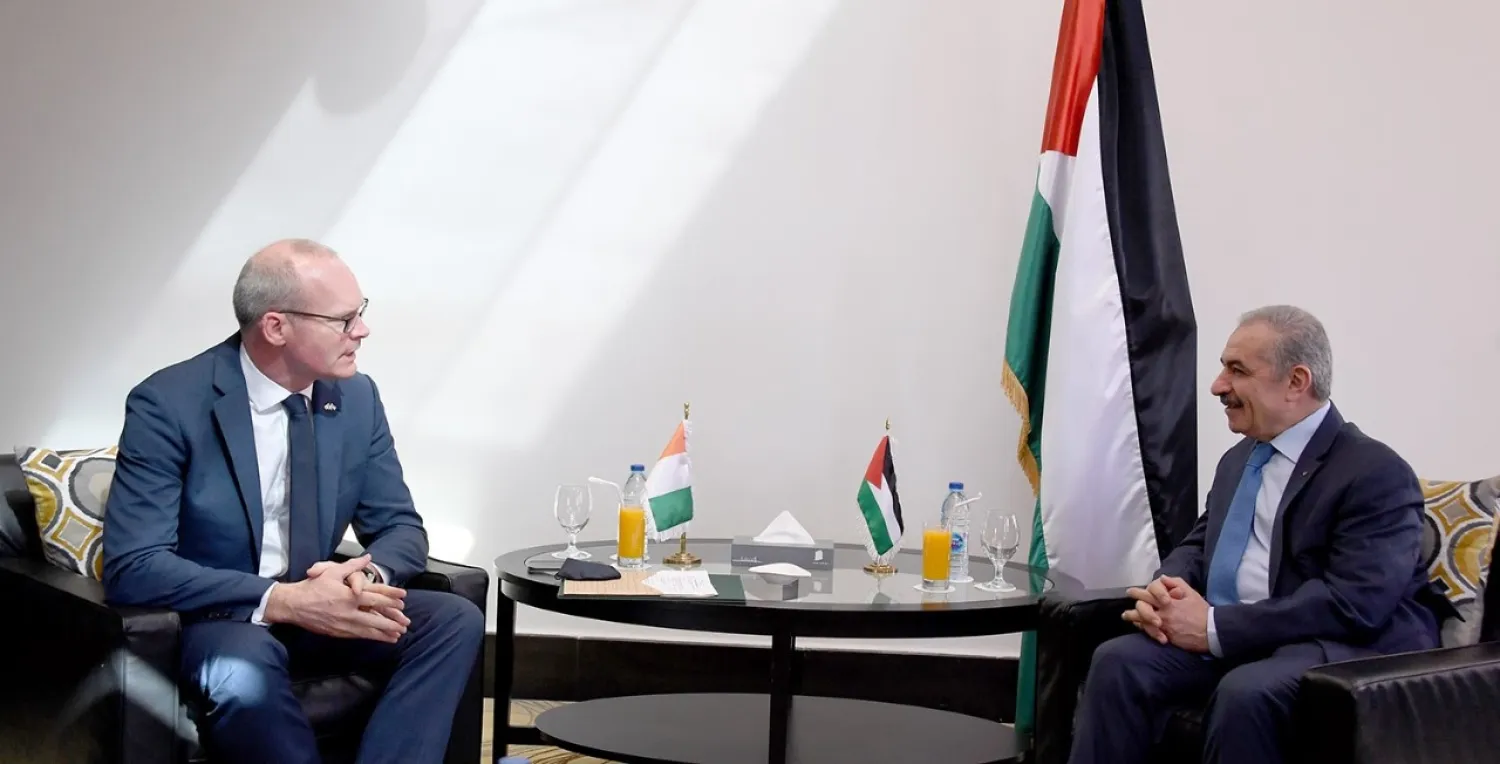Palestinian Prime Minister Mohammad Shtayyeh Thursday called on European countries to take concrete action to preserve the eroding two-state solution.
During a meeting with Ireland’s Foreign Minister, Simon Coveney, in Amman, Shtayyeh underscored the need for Europe to act to preserve the constantly eroding two-state solution, given the persistent Israeli colonial-settlement construction and intensifying acts of violations and “settler terrorism” against the Palestinian people.
The Palestinian PM reiterated the need for Europe to take a politically rewarding step and to exert pressure on Israel to halt colonial-settlement construction, daily intrusions on holy sites in Jerusalem, including the Al-Aqsa Mosque compound and attempts to forcibly displace Palestinians from Jerusalem, and lift the 14-year siege on the Gaza Strip.
His comments came after the Israeli forces on Thursday demolished a mosque in the town of Duma, south of the occupied West Bank town of Nablus.
Ghassan Daghlas, an official who monitors colonial settlements in the northern West Bank, told WAFA news agency that Israeli forces brought a bulldozer to the town and tore down a mosque, which has been attended by worshipers for the past two years.
He added that the occupation forces also demolished agricultural roads in the southern part of the town.
The Ministry of Endowments and Religious Affairs slammed the mosque demolition as a clear act of aggression against Muslim holy sites and an act of provocation against Muslim sentiments.
Supreme Sharia judge of the Palestinian Authority Dr. Mahmoud al-Habash said the demolition represented a flagrant aggression against the Islamic religion, the Islamic faith, and the feelings of Muslims all over the world.
Also, the Palestinian Foreign Ministry condemned the “open war of occupation against the Palestinian national and humanitarian presence in Area C.”
For its part, the Islamic Jihad movement said there is no way or means that can deter aggression and confront these crimes, except confrontation and resistance in all forms.
The demolition of the mosque came one day after Israeli forces demolished several houses in the West Bank and Jerusalem.









